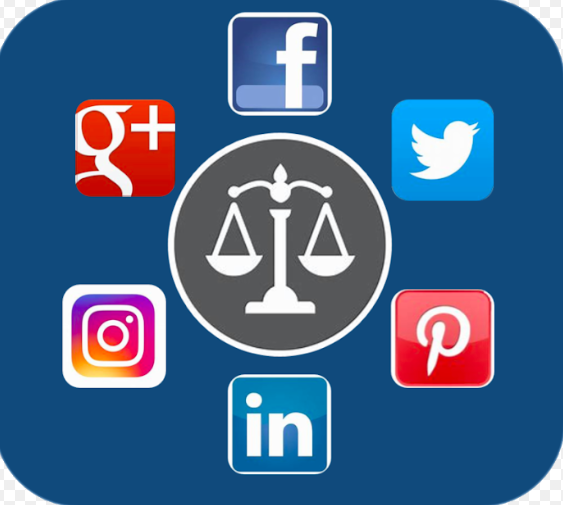|
Issue 1, Semester 2 EDGAR BOX The use of social media is not typically seen as a natural part of the law. Whilst the rise of digital platforms in commercial contexts has created a swathe of new legal issues; ranging from the legality of wills updated via Facebook to misleading advertising charges levelled against Instagrammers who fail to identify posts as sponsored content; barring networking platforms such as LinkedIn, the actual use of social media by the legal sector has been an underdeveloped practice. Client information and communication is privileged and needs to be kept off of unsecured digital channels. Legal work is often dry and information heavy, not easily translated into the concise and visual-centric language of the internet. In many cases, a perceived reputational mismatch exists, with practitioners viewing the flashy and attention-hungry mediums of the online world as beneath the dignity of a serious and respected profession. However, with structural shifts in the nature of communication and marketing in an increasingly digital economy, more firms are turning to social media to brand their services and reach prospective customers. At the periphery of this transition is the incipient phenomenon of the legal influencer — law practitioners who supplement or wholly replace their client activities with business models based around cultivating online personalities and engaging audiences to market themselves or other legal products. This practice is not, strictly speaking, new. In the nineties and early thousands, the advent of high-profile criminal trials thrust a number of lawyers into the spotlight as ‘celebrity attorneys’. During the media focus on the famous OJ Simpson murder trial, members of the defence team such as Robert Shapiro and Johnny Cochran became almost household names. Whilst these individuals were undoubtedly skilful at blending criminal defence with the quasi-PR and spin doctor role which suited the cable news culture of those decades, they were lawyers first with their reputations arising from their presence during high visibility historical moments rather than dedicated mechanics of personal branding. The modern marketing phenomenon of influencers, by contrast, hardly seems like an organic development for these personalities. Influencers are individuals, usually young and attractive, who communicate visible consumption or attach advertisements to content as a form of paid marketing for brands, often in fashion and lifestyle industries. The focus is conspicuously on the use and recommendation of products and services rather than on actual creation by the influencers themselves. Legal advice does not fit this mould. It is usually individually tailored and can only be consumed by one client at a time. It is hardly appealing or sexy — few millnnials are crying out for a hot take on the intricacies of contract negotiation by their favourite Instagram celebs.
There are, however, exceptions. A growing number of internet-savvy professionals have taken to platforms such as YouTube to create content of the 'law-as-entertainment' variety, a natural extension from the popularity of legal dramas in television, ranging from accessibly packaged legal commentary on political machinations of interest to the public, to humorous and satirical takes on the depiction of law and pseudo-legalese in popular culture. These creators — aiming their products at the public at large, often monetize themselves through advertisements or mentions of businesses, such as website creation tools or personal efficiency applications. Other spaces are opening up too for the dedicated marketing of tools to legal professionals, particularly in legal technology and automation. A thriving market in process automation, case management, research and billing services aimed exclusively at lawyers is already creating roles for prominent voices dedicated to championing and promoting services within the industry. Although these individuals are often self-stylised with more professionally palatable titles such as ‘legal technology experts’ or managerial trend-worthy terms such as ‘thought leaders’, the underlying business model of cultivating a personal brand of visible expertise to sell influence is strikingly similar. Currently these sales mechanisms take the form of blogs and speaking engagements, but as opportunities for global reach improve, and younger generations of internet-literate practitioners enter the industry, movements toward the use of established social media platforms and vehicles seem likely. Speculating on the future trajectory of these trends is a fun game. It doesn’t seem likely that we’ll see a massive spike in lawyers running Instagram accounts to sell posts about their holiday destinations or boutique makeup. However, the possibility of a new market for lawyers to develop and market targeted personalities in the professional arena is very possible. Personal branding may well become a key tool of the future lawyer’s trade. Edgar is a Second Year JD Student. Comments are closed.
|
Archives
October 2022
|



